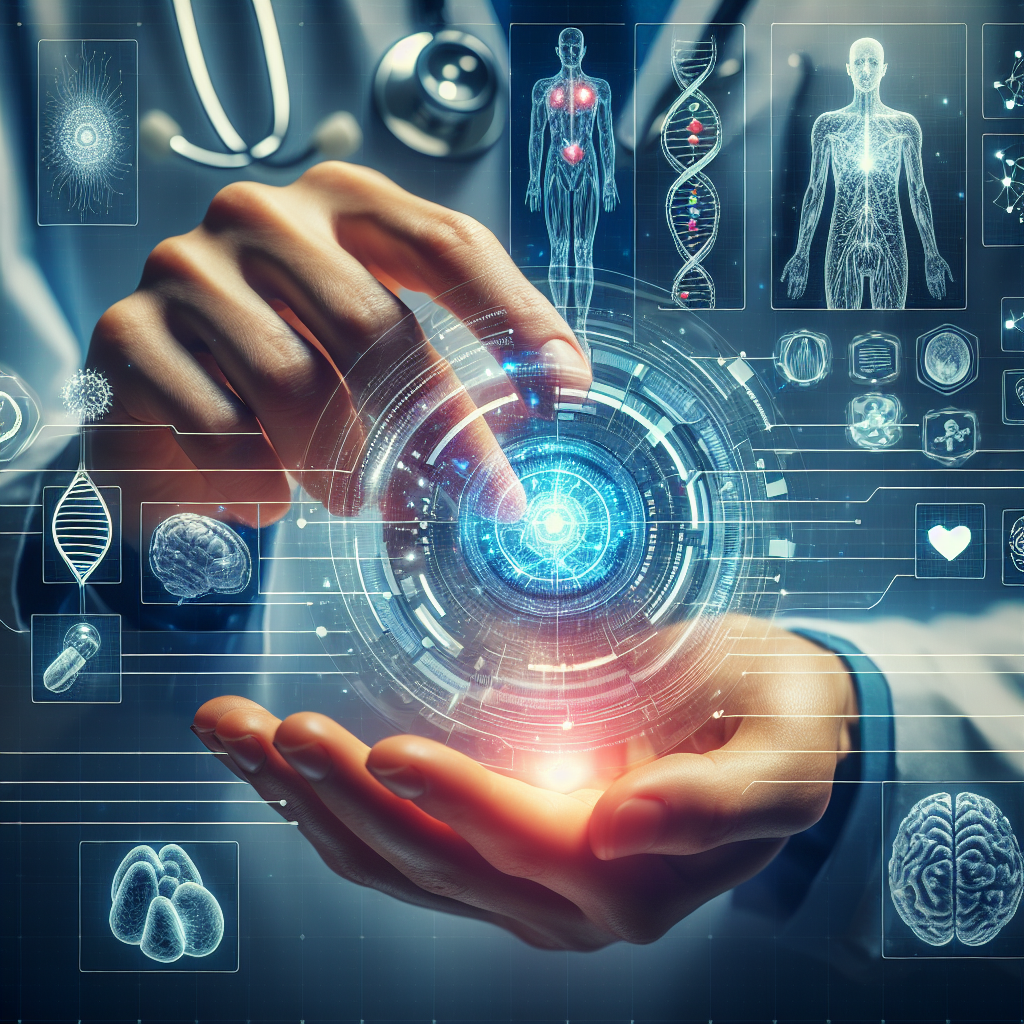Artificial general intelligence (AGI) has the potential to revolutionize the healthcare industry in ways that were previously unimaginable. AGI refers to a type of artificial intelligence that possesses the ability to understand, learn, and apply knowledge across a wide range of tasks and domains, much like a human being. In healthcare, AGI has the potential to transform medical diagnosis, treatment planning, drug discovery, and patient care in ways that can improve outcomes, reduce costs, and enhance overall quality of care.
AGI in Healthcare: Transforming Medicine
One of the key ways in which AGI is revolutionizing healthcare is through its ability to analyze vast amounts of medical data quickly and accurately. With the advent of electronic health records (EHRs) and other digital health technologies, healthcare providers now have access to an unprecedented amount of data on patients’ medical histories, lab results, imaging studies, and treatment outcomes. AGI can analyze this data in real-time and identify patterns, trends, and correlations that human physicians may not be able to detect. This can lead to earlier diagnosis of diseases, more personalized treatment plans, and better overall outcomes for patients.
AGI can also help healthcare providers make more informed decisions when it comes to treatment planning. By analyzing data from clinical trials, medical journals, and other sources, AGI can recommend the most effective treatment options for individual patients based on their unique medical history, genetics, and lifestyle factors. This can lead to more targeted and personalized treatment plans that are tailored to the individual needs of each patient, leading to better outcomes and fewer adverse events.
In addition to diagnosis and treatment planning, AGI is also being used to revolutionize drug discovery and development. Traditional drug discovery processes can take years and cost billions of dollars, with no guarantee of success. AGI can accelerate this process by analyzing vast amounts of data on drug compounds, protein structures, and disease pathways to identify potential drug targets and predict how different compounds will interact with the body. This can lead to the development of new drugs faster and more efficiently, ultimately improving patient outcomes and reducing healthcare costs.
Another area where AGI is making a significant impact in healthcare is in patient care and monitoring. AGI-powered chatbots and virtual assistants can provide patients with real-time information on their health conditions, medication regimens, and treatment plans, helping them stay informed and engaged in their care. AGI can also analyze data from wearable devices, such as fitness trackers and smartwatches, to monitor patients’ vital signs, activity levels, and overall health status. This can help healthcare providers detect early warning signs of potential health problems and intervene before they escalate into more serious conditions.
FAQs about AGI in Healthcare
Q: What are some of the potential benefits of AGI in healthcare?
A: Some of the potential benefits of AGI in healthcare include improved medical diagnosis, more personalized treatment plans, faster drug discovery, better patient care and monitoring, and reduced healthcare costs.
Q: How is AGI different from other types of artificial intelligence?
A: AGI is different from other types of artificial intelligence, such as narrow AI or machine learning, in that it possesses the ability to understand, learn, and apply knowledge across a wide range of tasks and domains, much like a human being.
Q: What are some of the challenges of implementing AGI in healthcare?
A: Some of the challenges of implementing AGI in healthcare include concerns about data privacy and security, regulatory issues, ethical considerations, and the need for healthcare providers to be trained in how to use and interpret AGI-powered tools and technologies.
Q: How can healthcare providers prepare for the implementation of AGI in their practices?
A: Healthcare providers can prepare for the implementation of AGI in their practices by staying informed about the latest developments in AI and healthcare, investing in training and education for their staff, and partnering with technology companies that specialize in AGI-powered solutions.
Q: What are some examples of AGI-powered technologies that are currently being used in healthcare?
A: Some examples of AGI-powered technologies that are currently being used in healthcare include IBM Watson for Oncology, which helps oncologists make more informed treatment decisions for cancer patients, and Google DeepMind’s Streams app, which helps healthcare providers monitor patients’ vital signs and alert them to potential health problems.
In conclusion, AGI has the potential to revolutionize the healthcare industry in ways that can improve outcomes, reduce costs, and enhance overall quality of care for patients. By leveraging the power of AGI to analyze vast amounts of medical data, make more informed treatment decisions, accelerate drug discovery, and improve patient care and monitoring, healthcare providers can deliver more personalized and effective care to their patients. As AGI continues to advance and evolve, it will be exciting to see how it can further transform and revolutionize the practice of medicine in the years to come.

